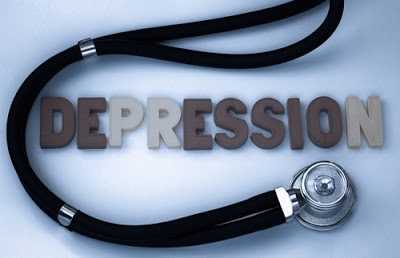
What Does it Mean to Have Depression?
No one is happy all of the time. We have our moments where we can get very sad and feel like we do not know what to do. Those with depression feel like this all of the time like there is no hope. People with depression need to know that there is hope as they go into treatment and get prescribed medication to feel happy again.
What is depression?
Depression is a mood disorder that causes distressing symptoms that can affect the way you think, feel, and handle everyday activities. Symptoms would last at least two weeks.
What is the difference between depression and sadness?
Sadness is a natural human reaction anytime you confront any upsetting or painful situations. Sadness is also temporary and those feelings can fade over time. Depression, on the other hand, is a long-term mental illness that can last weeks or years.
What are different kinds of depression?
Major Depression is when you experience extreme symptoms every day for at least two weeks that can affect work, sleep, relationships, eating, and enjoying life. Persistent Depressive Disorder is when symptoms last at least two years. Perinatal depression is experiencing full-blown major depression during or after pregnancy. Seasonal Affective Disorder is a depression during the seasons of little sunlight starting in late fall or early winter and ends in the spring or summer. Psychotic depression is a mix of severe depression and psychosis symptoms like delusions or hallucinations.
Who is at risk for depression?
Anyone can develop depression no matter what age or where you came from. You can be at risk if you have been in an emotionally painful situation at an early age, have a low self-esteem, have a family history or personal history of mental illness or drug abuse, have trouble adjusting to a medical condition or body change, or have a lack of support. Depression can also be a side effect to medications such as corticosteroids, beta blockers, statins, or hormonal medications.
What are symptoms of depression?
Symptoms include constant sadness or feeling empty, worthless, helpless, losing interest in activities you used to enjoy, trouble concentrating, sleep and appetite changes, unexplainable head or stomach pains, restlessness, or thoughts or attempts of suicide.
How is depression treated?
First visit a health care provider to do an exam, interview, and lab test to get a diagnosis of depression. Once diagnosed, there are medications to take such as antidepressants. Speak to a doctor if you are experiencing any unsettling side effects. Psychotherapy can teach you how to think, behave, and change habits that can make you depressed as well as getting through difficult relationships. Electroconvulsive Therapy can help relieve symptoms of severe depression. It also helps to lead an active life surrounded by people who love you.






